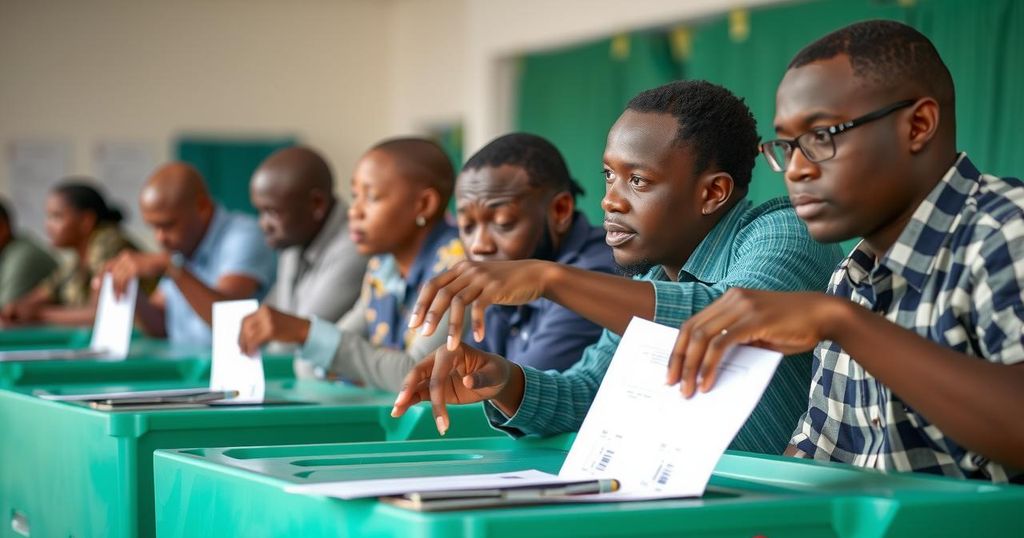Voters in Comoros are heading to the polls for parliamentary elections amid allegations of past electoral irregularities following President Azali Assoumani’s controversial re-election. Approximately 338,000 individuals are registered, with nearly 100 candidates contesting for 33 seats. The elections are crucial amidst concerns regarding authoritarian tendencies and potential dynastic succession.
Citizens of Comoros are participating in parliamentary elections for the 33-seat legislature, taking place a year after the controversial re-election of President Azali Assoumani, which opposition groups claim was marred by extensive irregularities. The ruling party officials have categorically denied these allegations. As polling stations opened early on a Sunday, approximately 338,000 individuals were registered to cast their votes, marking the first parliamentary elections since January 2020. The Supreme Court of Comoros has approved nearly 100 candidates to compete for parliamentary seats. Opposition members accuse President Assoumani of authoritarian tendencies and speculate that he is positioning his eldest son, Nour El-Fath, to succeed him at the end of his current term in 2029. Assoumani has ruled Comoros since assuming power via a coup in 1999 and has won three subsequent elections. In a notable development, the President granted his son extensive governmental powers in 2024, empowering him to oversee all governmental operations. Some opposition factions, such as the Juwa party led by former President Ahmed Abdallah Sambi, who is currently serving a life sentence, have urged voters to boycott the elections. However, other opposition groups opposed this stance. “The Azali regime is weakened … by participating in these elections we are contributing to further exposing the flaws in its system and accelerating its inevitable fall,” stated Hamidou Karihila, a candidate from the opposition Hope of the Comoros party, in comments to Reuters. The announcement of election results is anticipated by the end of the week.
The political landscape in Comoros has been tumultuous since President Azali Assoumani first came to power in 1999 through a coup d’état. His tenure has been characterized by allegations of authoritarianism and electoral malfeasance. The opposition parties have consistently challenged the legitimacy of his administration, particularly following the 2022 elections and ongoing political manipulations. Paralleling this dynamic is the shifting power structure within the Assoumani regime, notably the increasing authoritative role allocated to Nour El-Fath, President Assoumani’s son, which raises concerns about dynastic succession. With the opposition divided on strategies, these elections represent a critical juncture for political accountability and the future governance of Comoros.
In summary, the parliamentary elections in Comoros are unfolding against a backdrop of political tension and allegations of authoritarianism surrounding President Azali Assoumani’s administration. With approximately 338,000 registered voters, the electoral process is of significant interest, particularly due to assertions of irregularities and the potential implications of dynastic power. As various opposition parties navigate their positions regarding participation, the outcomes of these elections may hold considerable significance for the country’s democratic future.
Original Source: www.areanews.com.au






